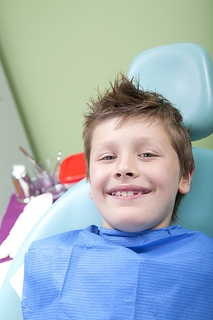The Science of Sugar
October 5th, 2022

Some languages have many different words for love. Some have many different words for snow. One language even has different words for a tasty layered sandwich. Is that a hoagie or a hero you’re having? A sub? Grinder? Po’boy?
“Sugar,” though, is a single word which has taken on many meanings, from casual endearment to monosaccharide molecule. Today, we’re examining scientific definitions, with a short and sweet look at the science of sugar.
Chemistry
First, let’s get basic—all the way down to the molecular level.
Carbohydrates, fats, and proteins are the three essential macronutrients which keep our bodies running. Sugars are molecules made of carbon, hydrogen, and oxygen atoms, and all carbohydrates are made of these sugar molecules, from single unit structures to very complicated chains.
Sugars called monosaccharides are the most basic of the carbohydrates. “Monosaccharide” comes from the Greek words for “single” and “sugar,” and monosaccharides are the sugars we mean when we talk about “simple sugars.” Why are they simple? Because a monosaccharide is a single molecule which can’t be broken down into smaller carbohydrates.
While there are several types of monosaccharides, the three major simple sugars are:
- Fructose—the sugar we get from fruit.
- Galactose—the sugar found in milk.
- Glucose—the sugar our bodies use the most. It’s found in plants, and also produced when our bodies break down other carbs. Fun fact—this is the only sugar essential for brain cell function.
When two monosaccharide molecules join together, they form a disaccharide (not surprisingly, from the Greek for “two sugars”). Again, there are quite a few disaccharides, but we tend to concentrate on three in our diets:
- Lactose (glucose + galactose)—found only in milk and dairy products.
- Maltose (glucose + glucose)—the sugar chiefly produced by grains.
- Sucrose (glucose + fructose)—produced in plants. These plants include sugar cane and sugar beets, from which we get our refined table sugars.
The reason sugar molecules are so important is because of how our bodies use them.
Biology
Our bodies use the glucose in carbs for energy. As foods break down, first through digestion and then in the cells, the chemical bonds which hold glucose molecules together break as well. This action releases energy, and this energy fuels all our bodily functions.
But even though we need carbohydrates to keep our bodies going, and even though sugars are the easiest carbs to use for energy, there’s a reason no one recommends a diet filled with extra sugar.
Our bodies get all the sugar they need from the natural sugar in the foods we eat. Natural sugars are found in fruits, dairy products, even some vegetables and grains. Along with that sugar come vitamins, minerals, antioxidants, fiber, and/or protein.
Extra sugars added during baking or mixing or processing for flavor and sweetness provide none of these nutrients. These sugars are known as “added sugars,” and have more serious consequences than just empty calories.
Once we have the sugars we require, there’s no need for more. Extra sugars are stored in liver, muscle, and fat cells for later use. When we eat too much sugar, this carefully balanced system is upset, with negative effects for, among other things, weight, blood sugar, insulin levels—and our dental health.
Nutrition and Dental Health
You know that a sugar-filled diet often means a cavity-filled checkup. Why? Because it’s not just our bodies that break down sugar for fuel.
The oral bacteria in plaque also need sugars for food, which they use to make acids. An acidic environment in the mouth weakens and dissolves the minerals which keep tooth enamel strong. And these weak spots are vulnerable to decay. A steady diet of sugar-filled foods means that your enamel is constantly under acid attack.
Cutting down on added sugars is one of the easiest and best ways to cut down on added cavities. Reading recipes, checking out labels, learning to recognize added sugars—this is nutritional research which has sweet results.
How to recognize added sugars? Here’s where language gives us plenty of words to fill our linguistic sugar bowl. Whether the ingredients are called agave nectar, honey, molasses, syrups, treacle, or table sugar, they’re really just sugar. More specifically, they’re all sugars made up of glucose and fructose, with at best a trace amount of vitamins and minerals—and usually not even a trace!
To make our lives easier, labels on food packaging now let us know exactly how much of the sugar in any product is “added sugar.” You expect to find a high percentage of sugar on dessert labels, but you might be surprised to read how much sugar is added to foods like energy drinks, sports drinks, flavored yogurts, cereals, spaghetti sauce, and many more of the items in your grocery cart. Spend an extra minute examining the label, and save yourself many empty calories.
Monosaccharides, disaccharides, glucose, fructose, maltose, agave syrup, treacle, and on and on—so many words for so many kinds of sugar. When it comes to dental health, let Drs. Angela Paros, Amer Atassi, Eric Young, Alexander Katsnelson have the last word on sugar science. During your next visit to our Romeoville, IL office, talk to us about reducing unnecessary sugars in your diet for a future filled with the sweetest of healthy smiles.
In the Pink
September 28th, 2022

Our gums cover and protect the sensitive roots of our teeth and the bone around them. While we often think of gum tissue as a rosy shade of pink, that’s not a hard and fast rule. Just as skin tones vary, gum color can vary from person to person.
Healthy gums can range from light pink to darker pink to hues of brown or black. Because your gums are a good indicator of your oral health, what’s important isn’t your normal gum color, it’s noticing any changes in your normal gum color. These changes could be symptomatic of several different dental and medical conditions.
Pale Gums
- Anemia
If the overall appearance of your gums is paler than usual, anemia is a prime suspect. Anemia is a common condition caused by a low red blood cell count. Hemoglobin in red blood cells delivers the oxygen our tissues need to function properly, and without enough, we suffer symptoms like fatigue, weakness, pallor, faintness, and rapid heartbeat.
Anemia can be caused by an underlying medical condition, or can develop because of other issues, such as iron or vitamin deficiencies, pregnancy, ulcers, certain medications, or heavy menstrual periods. If you have any of the symptoms of anemia, seeing your doctor for a blood test is a good idea.
- Teeth Whitening
Occasionally, gums can also lighten up after a tooth whitening procedure. This is due to tissue irritation caused by the bleaching chemicals. Usually this condition is very temporary.
Ask Drs. Angela Paros, Amer Atassi, Eric Young, Alexander Katsnelson for advice if you experience irritation after home treatments. Having your teeth whitened by a dental professional is one way to make sure your gums get the best protection possible during the process.
Red Gums
- Inflammation
Red gums are a common symptom of gingivitis (early gum disease). Plaque and tartar irritate your gums, and gum tissue reacts to this irritation by becoming inflamed. Left untreated, gingivitis becomes periodontitis (serious gum disease), which can destroy the bone around the tooth and lead to tooth loss.
If you notice signs of gingivitis—redness, swelling, bleeding, bad breath—talk to Drs. Angela Paros, Amer Atassi, Eric Young, Alexander Katsnelson. Often, gingivitis is easily remedied in the early stages by better attention to dental hygiene. Brushing for two minutes at least twice each day and flossing at least once a day are a good base line for keeping gum disease at bay.
- Infection
Redness can also be caused by infection. If you’re experiencing redness, pain, loose teeth, swelling, pus, or fever, it’s important to see Drs. Angela Paros, Amer Atassi, Eric Young, Alexander Katsnelson as soon as possible in case you have an abscess or infected dental cyst. Without treatment, infection can seriously damage gum tissue, teeth, and underlying bone.
- Over-Vigorous Brushing
Brushing too hard or using the wrong brush can cause gum irritation. Do your gums (and teeth!) a favor by using proper brushing technique—massage, don’t scrub—and always use a soft-bristled brush.
Spots of Discoloration
Sometimes you notice a patch of lighter or darker tissue that you haven’t seen before. A spot that is different from the gum tissue around it can be harmless or need further attention.
Contact our Romeoville, IL office if you have any recent discoloration, sores, pain, lumps, or any differences in appearance or sensation in your mouth. There are several types of oral cancer and prompt diagnosis and treatment is important to prevent the spread of cancerous cells.
Why a periodontist?
If you’re concerned about the health of your gums, making an appointment at our Romeoville, IL office is a great idea. The word “periodontal” comes from the Greek words for “around” and “tooth,” and a periodontist is a specialist in treating the structures surrounding the tooth, including the gums, the bone tissue holding the tooth, and the connective tissue between tooth and bone.
Periodontists have several years of additional post-doctoral study after dental school focused on diagnosing and treating periodontal problems, including:
- Diagnosing and treating gingivitis and periodontitis
- Surgical care for periodontal disease, including gum grafting
- Scaling and root planing, procedures which remove plaque and tartar from areas of the tooth above and below the gum line
- Monitoring your gums when you have other health conditions that could affect them, such as diabetes and heart disease
You know your smile better than anyone. Any time you see a change in the usual appearance of your gums, it’s important to see Drs. Angela Paros, Amer Atassi, Eric Young, Alexander Katsnelson. Treating gum problems before they become serious is one of the best ways to keep yourself—and your smile—in the pink of health!
Discovering Your Roots
September 21st, 2022

Getting to the Root of the Problem(s)
While our roots are well-protected, they’re not indestructible! Several conditions can damage them. But we’re not just about problems—we also have some suggestions to keep your roots solid and intact for a lifetime.
- Traumatic Injury
A blow, a fall from a bike, a sports injury—any trauma which can hurt your visible tooth can hurt your roots as well. And it’s not just accidents that cause harm. Cracks in the tooth caused by oral habits like chewing on ice, pencils, or other hard objects can lead to root fractures.
You can help prevent root injuries by wearing a mouth guard whenever you are engaged in contact sports or any physical activity that might cause damage to your face or mouth. If you have harmful oral habits, talk to Drs. Angela Paros, Amer Atassi, Eric Young, Alexander Katsnelson about how to break them. And if you do suffer a dental injury, see us as soon as possible to avoid more serious complications.
- Bruxism
Bruxism, or tooth grinding, is most often an unconscious habit that takes place while you sleep. Grinding puts enormous pressure on teeth and their roots. The damage can be obvious, with cracked and worn crowns, but your roots can be affected, too. The strain of this constant pressure can stretch the periodontal ligament, causing loose teeth.
Night guards are one of the easiest ways to relieve pressure on individual teeth and roots. Your dentist can fabricate a night guard which will provide comfortable, effective protection for your teeth and jaw.
- Root Infections
Any infection in the pulp of the tooth will affect the roots as well. Your dentist will examine you carefully to see if a root canal is advisable. In this procedure, injured or infected pulp is removed from the pulp chambers and the root canals, the tooth is cleaned and filled, and, usually, a crown caps the tooth afterwards.
- Gum Recession
Finally, one of the best ways to protect your roots is to take care of the tissues surrounding them. A periodontist is a specialist in the diagnosis and treatment of the gums, bones, and other tissues supporting the teeth.
Gums often recede as we age, leaving part of the root exposed. Gum disease, failure to brush and floss regularly, and heavy-handed brushing can also lead to gum recession. The newly revealed cementum is now exposed to the plaque and acids which cause cavities in our enamel, and, since it’s not as strong as enamel, cementum is more vulnerable to erosion and cavities progress more quickly.
When more severe recession takes place, the gums pull away from the teeth, creating pockets which become home to plaque and bacteria. Left untreated, infection and inflammation can develop, attacking teeth, connective tissue, and bone.
Talk to your periodontist about scaling and planing procedures for a deep cleaning of the root surface, or grafting procedures to replace the gum tissue which protects your roots and bones.
Healthy roots help you keep your teeth for a lifetime, so it’s important to see your dentist as soon as possible if you have any symptoms of potential root or gum problems:
- Constant pain in tooth, gums, or jaw
- Pain when biting down
- Loose teeth
- Tooth discoloration
- Sensitivity to hot and cold
- Swelling or pain in the gums around a tooth
- Receding gums
Do your part by keeping up with daily brushing and flossing, seeing Drs. Angela Paros, Amer Atassi, Eric Young, Alexander Katsnelson for exams as recommended, and making an appointment at our Romeoville, IL office if you are feeling any pain or discomfort. Strong roots are essential to our oral health, and a lifetime of healthy smiles is something we’re all rooting for!
How do I handle my child’s dental emergency?
September 14th, 2022

With children undergoing developmental dental changes and engaging in rough-and-tumble activities, dental emergencies can sometimes arise. If your child knocks out a tooth or experiences any type of oral discomfort, call High Point Dental Group right away so we can provide you with a quick assessment and pain-free treatment.
Before an emergency occurs, it’s a good idea to stay informed about the problems your child may encounter. Here are a few things you should keep in mind about teething pain, loose baby teeth, and other common dental issues.
Teething Pain
Typically occurring in babies that are between four months and two and a half years old, teething may cause excessive drooling, tender gums, and some irritability. Giving your baby a cold teething ring or gently rubbing her gums with wet gauze or your finger may also make her feel better.
Loose Baby Tooth
It is normal for a child’s first set of teeth to become loose and fall out. On the other hand, if your child’s baby tooth is knocked loose, schedule an appointment with our office so we can assess whether any damage has been done.
Issues with Permanent Teeth
Sometimes a child’s permanent teeth will grow in before the baby teeth have fallen out. Even if this condition isn’t causing any discomfort, you should schedule an appointment with our office so we can determine whether your child’s permanent teeth are growing in correctly.
Bleeding Gums
Bleeding gums can result from a number of factors, including periodontal disease, rough brushing, or an injury to the gum tissue. If your child’s gums are bleeding heavily, call our office right away so we can address the situation. If you have time before your appointment, wash your child’s mouth with salted water and gently put pressure on the affected area.
Regardless of the type of dental issue your child has, you can always consult Drs. Angela Paros, Amer Atassi, Eric Young, Alexander Katsnelson for further guidance. We make sure our emergency services are available 24 hours a day and seven days a week, so you have ready access to convenient and professional dental care that will have your child feeling better in no time.






